President Macri visited the thermoelectric plant fed by Galileo’s LNG Virtual Pipeline
The Argentine President, Mauricio Macri, visited the thermoelectric power plant recently inaugurated by Methax, Grupo Galileo's power station, in Anchoris, province of Mendoza.
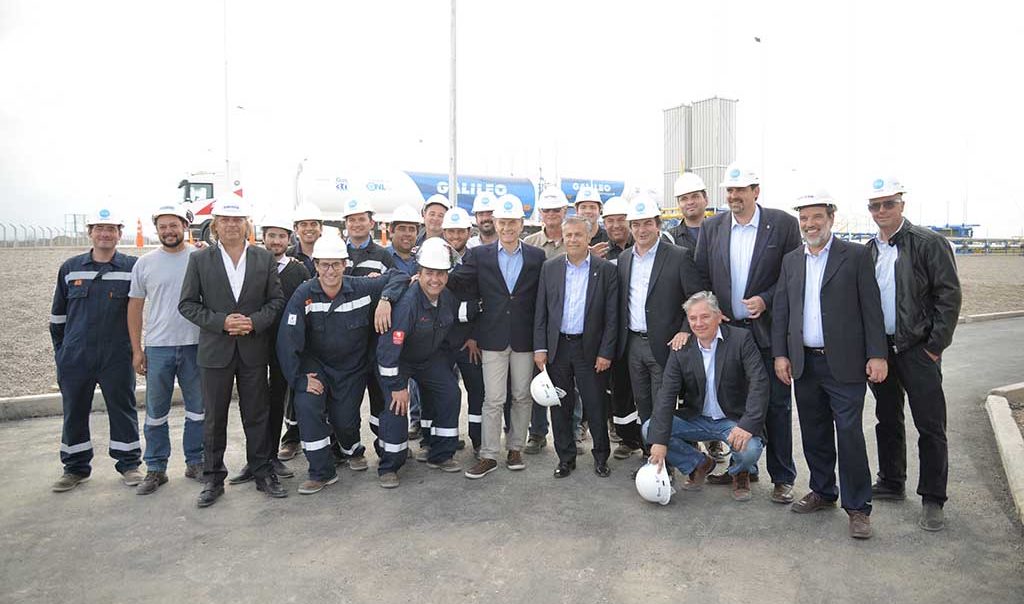
President Macri and Governor Cornejo with Methax and Galileo Technologies workers. Osvaldo del Campo, Grupo Galileo’s President and CEO (third from the left). Horacio Pinasco (second on the right), Minister Martin Kerchner (third on the right) and the Undersecretary Emilio Guiñazú, squatting. Credit: “Prensa de Gobierno de Mendoza” (Mendoza Government Press).
The visit was conducted with the Governor of Mendoza, Alfredo Cornejo, since the new power station is part of EMESA’s (Empresa Mendocina de Energía Sociedad Anónima) infrastructure projects to double Potrerillos’ current generation of 120 megawatts.
Upon their arrival, the authorities were received by Osvaldo del Campo, Grupo Galileo’s President and CEO; the Minister of Economy, Infrastructure and Energy of the province of Mendoza, Martín Kerchner; the Undersecretary of Energy, Emilio Guiñazú; and Methax’s General Manager, Horacio Pinasco.
During his visit, the President insisted on accessing the power station command center, from where the power generation, the wells where gas is liquefied and the LNG Virtual Pipeline are controlled simultaneously.
There, Osvaldo del Campo offered a detailed explanation of every aspect of the operation. Upon Macri’s question about the amount of people who would benefit from these kind of projects, del Campo emphatically stated that “half of the population” of the country could receive gas and energy through the Virtual Pipelines and Distributed LNG Production.
The businessman explained that isolated communities could receive gas from unconnected wells, where natural gas remains captive or is flared, and even from biogas sources; and these communities could only be supplied by conventional pipelines in the case of state subsidies. Among the main barriers to conventional pipelines expansion, he stressed river crossings and the high cost per kilometer of pipeline when reaching remote or small towns.
Furthermore, del Campo highlighted that this project is a healthy example of a strategic alliance between the public and private sectors. The state established priorities, provided technical advice through EMESA and we applied technology and investment.
Finally, del Campo added that Virtual Pipelines and LNG would also allow the injection of new gas in the main pipelines, connecting disperse sources with infrastructure.
News
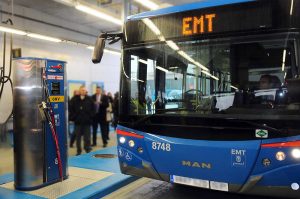
“Record-Breaking Station”: A decade of uninterrupted NGV supply in Spain
With NGV refueling technology developed by Galileo Technologies, Empresa Municipal de Transporte de Madrid continues to reduce its carbon footprint with 400 vehicles powered by clean energy.
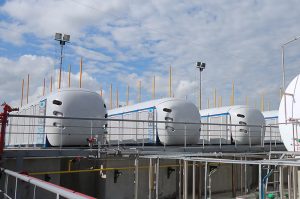
Buquebus strengthens its alliance with Galileo Technologies by expanding its LNG manufacturing plant in Argentina
Thanks to Cryobox® technology, developed by Galileo for the liquefaction of natural gas, Buquebus will have a total of nine pieces of equipment in its manufacturing plant, which will result in an increase in production and efficiency in the generation of LNG in Buenos Aires.
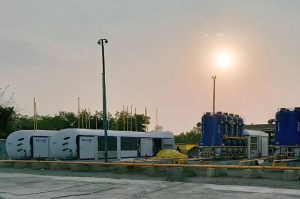
India produces LNG for the first time with Galileo Technologies equipment
Thanks to the Cryobox technology, developed by Galileo for the liquefaction for Gail Limited India’s leading natural gas company, will be in charge of supplying LNG to both industries and public transport.
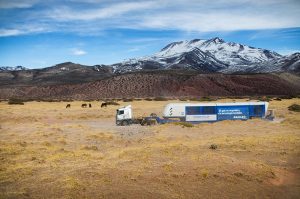
Galileo Technologies prepares for a new edition of Argentina Oil & Gas Expo
The company will offer its innovative compression, CNG, LNG, Bio-LNG and Bio-CNG solutions in September in Buenos Aires.